
Enchanting Oasis: The Nubian Village of Aswan
Discover the vibrant culture, stunning landscapes, and warm hospitality of the Nubian Village in Aswan, a hidden gem along the Nile River.
Nestled along the banks of the Nile River, the Nubian Village in Aswan is a vibrant tapestry of culture, history, and natural beauty. The village is famed for its brightly colored houses, which are painted in vivid hues of blue, yellow, and pink, creating a cheerful and welcoming atmosphere. The village is home to the Nubian people, an ethnic group with a rich heritage that dates back to ancient Egypt. Visitors to the Nubian Village will experience the warm hospitality of the Nubian people, who are known for their friendliness and generosity. Walking through the narrow, winding streets of the village, you'll find a variety of local markets and shops selling traditional Nubian crafts, such as handwoven baskets, jewelry, and pottery. The village is also a great place to sample authentic Nubian cuisine, with many small restaurants offering delicious dishes made from locally sourced ingredients. Don't miss the chance to try 'Fatta', a traditional meal made with rice, bread, and meat, flavored with a unique blend of spices. As you explore the Nubian Village, you'll be captivated by the stunning scenery that surrounds it. The village is situated on the banks of the Nile, with views of the river and the desert beyond. Take a boat ride on the Nile to fully appreciate the beauty of the landscape, or simply relax by the river and watch the sunset. The village is also home to several historic sites, including ancient temples and tombs, which provide a fascinating glimpse into the region's past.
Local tips in Nubian Village
- Visit during the cooler months from October to April for the most pleasant weather.
- Bring cash, as many local vendors and restaurants do not accept credit cards.
- Wear comfortable shoes, as the village is best explored on foot.
- Don't forget to haggle at the markets; it's a common practice and part of the experience.
- Take a guided boat tour to learn more about the history and culture of the Nubian people.
Enchanting Oasis: The Nubian Village of Aswan
Nestled along the banks of the Nile River, the Nubian Village in Aswan is a vibrant tapestry of culture, history, and natural beauty. The village is famed for its brightly colored houses, which are painted in vivid hues of blue, yellow, and pink, creating a cheerful and welcoming atmosphere. The village is home to the Nubian people, an ethnic group with a rich heritage that dates back to ancient Egypt. Visitors to the Nubian Village will experience the warm hospitality of the Nubian people, who are known for their friendliness and generosity. Walking through the narrow, winding streets of the village, you'll find a variety of local markets and shops selling traditional Nubian crafts, such as handwoven baskets, jewelry, and pottery. The village is also a great place to sample authentic Nubian cuisine, with many small restaurants offering delicious dishes made from locally sourced ingredients. Don't miss the chance to try 'Fatta', a traditional meal made with rice, bread, and meat, flavored with a unique blend of spices. As you explore the Nubian Village, you'll be captivated by the stunning scenery that surrounds it. The village is situated on the banks of the Nile, with views of the river and the desert beyond. Take a boat ride on the Nile to fully appreciate the beauty of the landscape, or simply relax by the river and watch the sunset. The village is also home to several historic sites, including ancient temples and tombs, which provide a fascinating glimpse into the region's past.
Iconic landmarks you can’t miss
Nubian Museum
Explore 7,000 years of Nubian history, art, and culture at Aswan's Nubian Museum, a treasure trove of ancient wonders and cultural heritage.
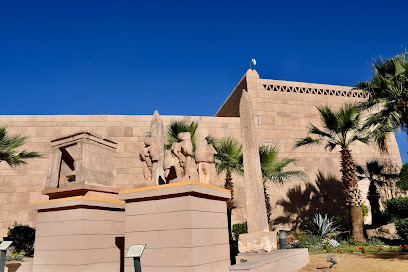
Aswan Botanical Garden
Explore Aswan Botanical Garden, an enchanting retreat showcasing diverse plant species and breathtaking views along the Nile River.
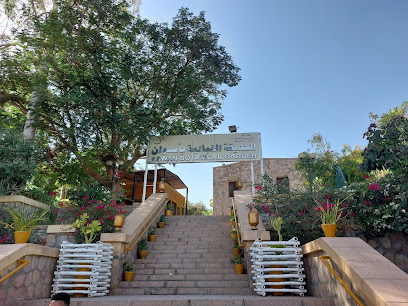
Elephantine Island Pyramid
Explore the mysteries of the Elephantine Island Pyramid, an ancient monument on the Nile, and discover the rich history of Aswan.
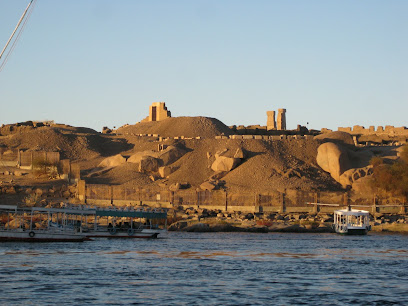
Kato Waidi Nubian House كاتو وايدى نوبيان هاوس
Experience Nubian culture firsthand at this colorful Aswan hotel, offering traditional hospitality and a unique glimpse into local life.

السوق السياحي غرب سهيل tourism market in Nubian village
Explore vibrant crafts, taste Nubian cuisine, and immerse yourself in the culture of West Suhail's tourism market near Aswan.
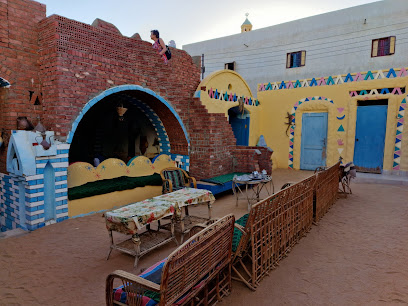
Nubian Eco Village
Discover the vibrant Nubian culture in Aswan's Eco Village: experience traditions, colorful architecture, and warm hospitality on the Nile's West Bank.
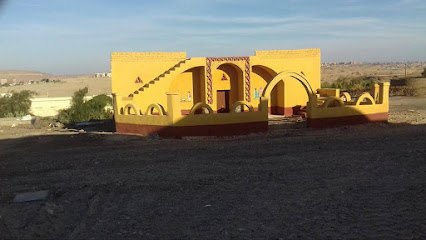
Discover with Mahmoud, Abu Simbel & the Nubian village tours
Discover the ancient wonders of Abu Simbel and the rich culture of Nubian villages with personalized tours led by expert guides.
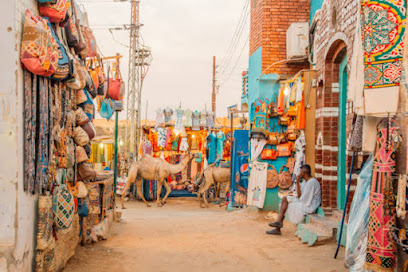
Soma family house
Discover Nubian heritage at Soma Family House: Experience authentic culture, traditions, and warm hospitality in a colorful Aswan setting.
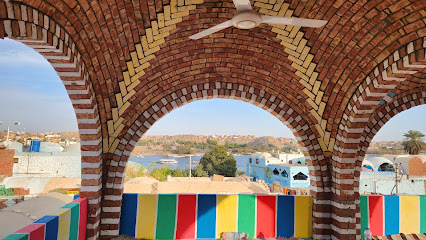
Desert Nile Aswan view point
Experience breathtaking panoramic views of the Nile, desert, and Aswan's ancient landscape from this must-see scenic spot.
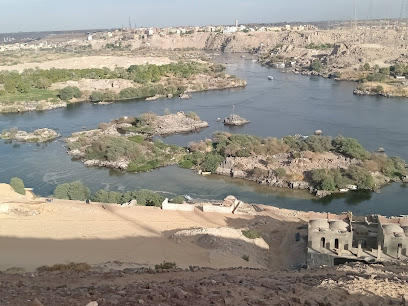
Public Ferry to Nubian Village
Take a short ferry ride from Aswan to experience the vibrant culture and colorful charm of a traditional Nubian village on the Nile's west bank.
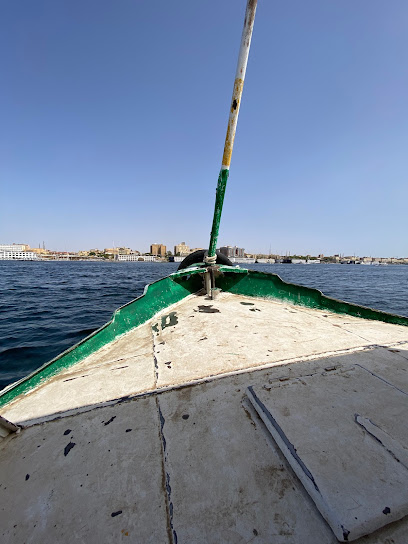
Unmissable attractions to see
Nubian Museum
Explore the Nubian Museum in Aswan, where ancient history meets vibrant culture, showcasing the rich heritage of the Nubian people.
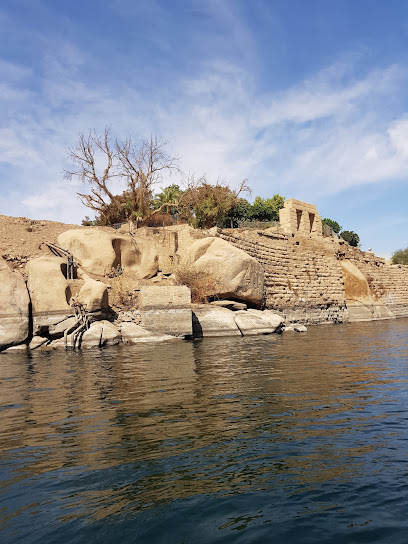
Aswan Botanical Garden
Explore the lush beauty of Aswan Botanical Garden, a tranquil oasis on the Nile, perfect for nature lovers and those seeking serenity in Egypt.
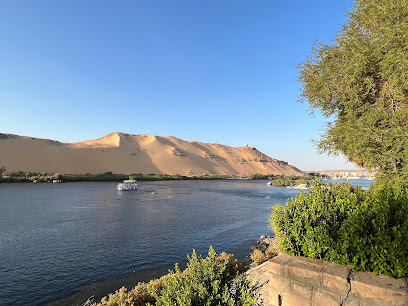
Animalia
Explore Animalia in Aswan, a vibrant museum dedicated to the rich culture and history of the Nubian people, set against stunning natural landscapes.
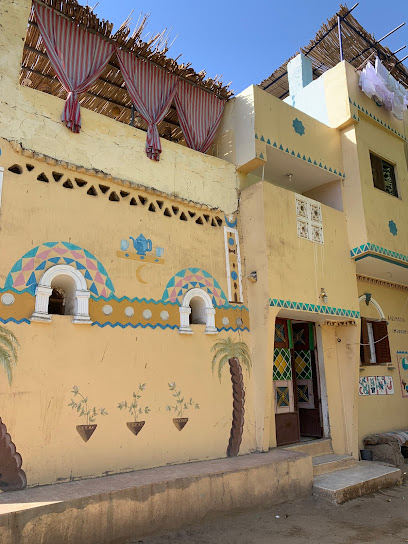
Elephantine Island Pyramid
Explore the ancient wonders of Elephantine Island Pyramid, a historical landmark rich in Nubian culture and breathtaking scenery in Aswan, Egypt.
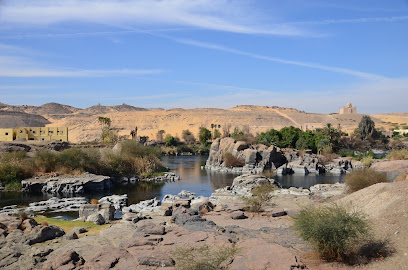
Aswan Museum
Explore the Aswan Museum: A Treasure Trove of Ancient Egyptian Artifacts and Heritage in the Heart of Aswan.
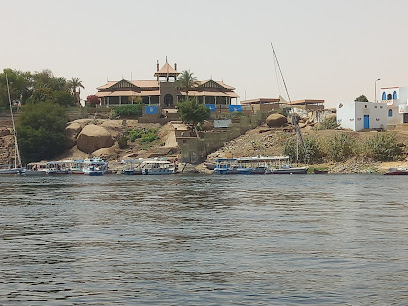
Nubian Eco Village
Experience the rich heritage and serene beauty of Nubian Eco Village, a unique blend of culture and tranquility in Aswan, Egypt.
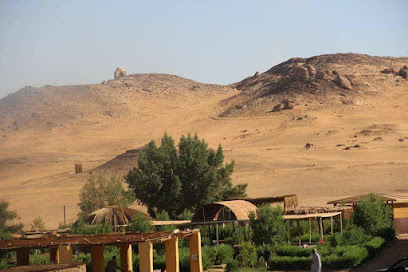
Soma family house
Discover the rich Nubian culture at Soma Family House, an authentic tourist attraction in Aswan that offers a warm welcome and unforgettable experiences.
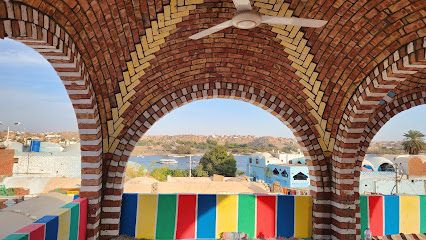
Isla Elefantina
Experience the serene beauty and rich history of Isla Elefantina, a tranquil island gem in the Nile River, perfect for relaxation and exploration.
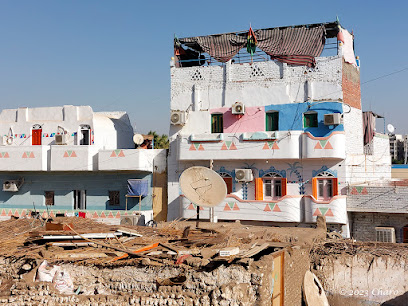
Essential places to dine
Bob Marley Moonlight terrace restaurant cafe
Savor delicious barbecue and Nubian cuisine at Bob Marley Moonlight Terrace Restaurant Cafe while enjoying stunning views in Aswan.
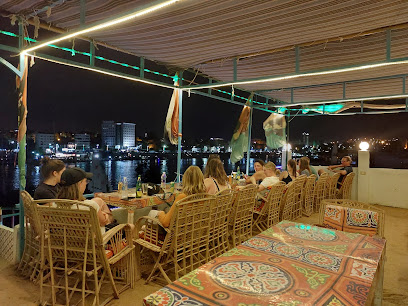
El Dokka Resturant
Experience authentic Nubian barbecue at El Dokka Restaurant in Aswan – where every bite tells a story of tradition and flavor.
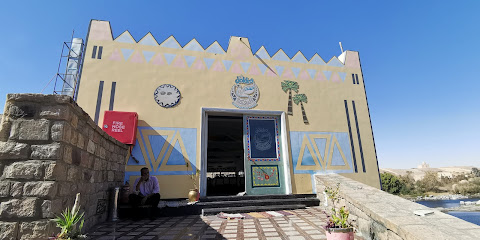
Nubian Dreams Restaurant & Cafe
Experience authentic Nubian cuisine at Nubian Dreams Restaurant & Cafe in Aswan - where every meal tells a story.
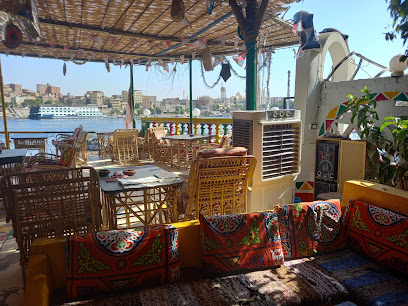
Ibiza Free Beach & Restaurants & Cafe
Experience serene beach vibes and delightful cuisine at Ibiza Free Beach & Restaurants & Cafe in Aswan – your ultimate getaway!
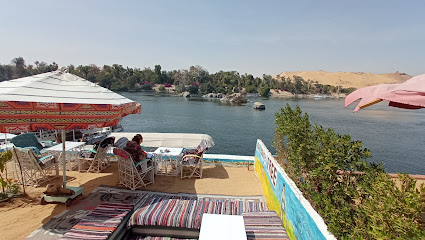
Panorama Restaurant & Bar
Experience exquisite dining at Panorama Restaurant & Bar on Elephantine Island with breathtaking views of the Nile River in Aswan.
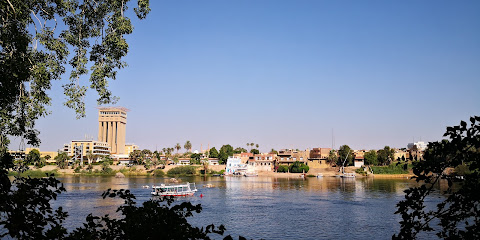
أنو كاتو بيت نوبى
Experience authentic Nubian cuisine at أنو كاتو بيت نوبى in Gharb Aswan – where every dish tells a story.
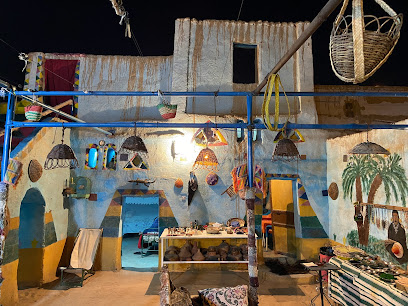
Strawberry Restaurant
Discover authentic Nubian cuisine at Strawberry Restaurant on Elephantine Island, where delightful meat dishes meet stunning Nile views.
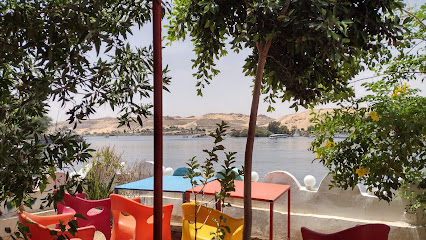
Amory restaurant Nubian village Aswan
Experience authentic Egyptian flavors at Amory Restaurant in Nubian Village, where culinary tradition meets breathtaking Nile views.
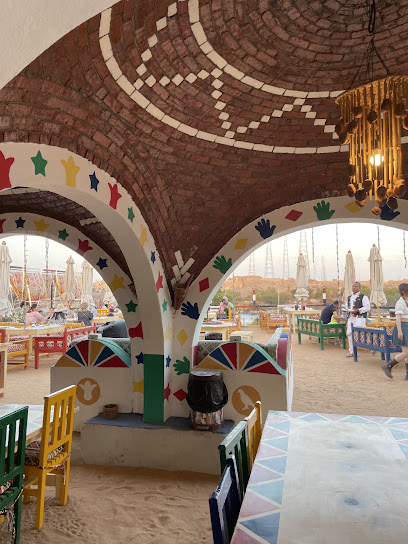
Núbiai falu-Crocodile House
Discover authentic Nubian flavors at Núbiai Falu-Crocodile House in Aswan—a delightful blend of tradition and taste.
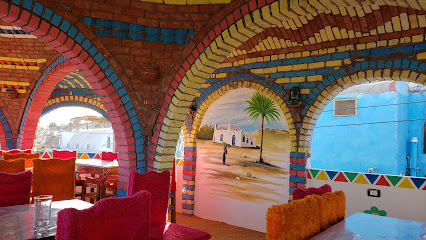
Nubian prince
Discover authentic Nubian cuisine at Nubian Prince in Aswan – where culture meets flavor in every dish.
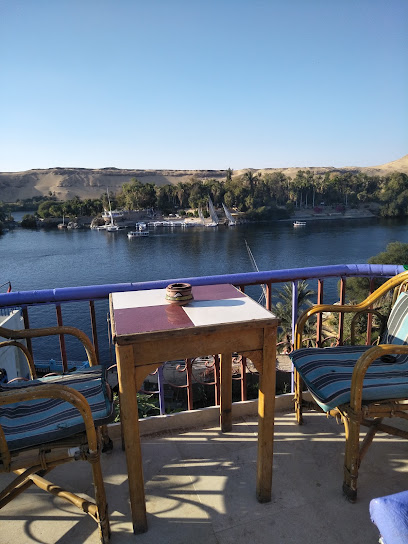
Markets, malls and hidden boutiques
Aswan Old Souks
Discover the heart of Aswan at the Old Souks, a vibrant market filled with local crafts, delicious flavors, and rich cultural experiences.
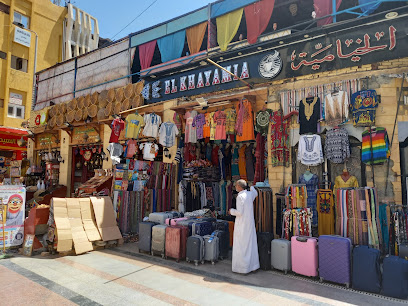
Sharia as Souq Market السياحي
Discover the vibrant Sharia as Souq Market in Aswan, a cultural treasure trove of local crafts, delicious food, and authentic Egyptian experiences.
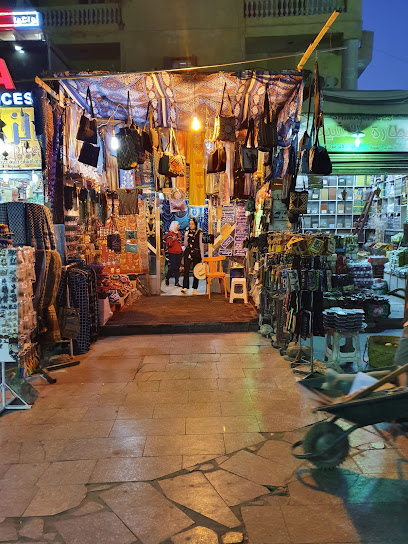
MAKANI
Discover the heart of Nubian culture at Makani, Aswan's charming coffee shop offering exquisite brews and a warm, inviting atmosphere.
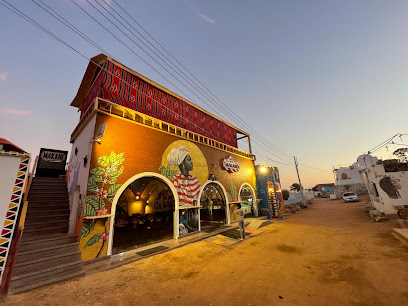
Nubian Spices
Explore Nubian Spices in Aswan: A Flavorful Journey Through Traditional Egyptian Spices and Culinary Art.
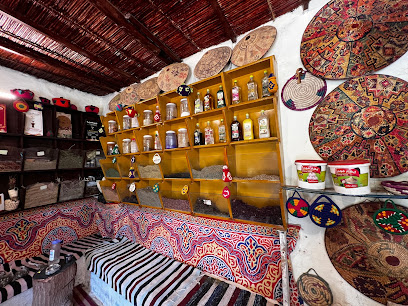
Sudanuba
Experience the rich flavors and vibrant culture of Nubia at Sudanuba, Aswan's beloved coffee shop offering delightful brews and engaging stories.
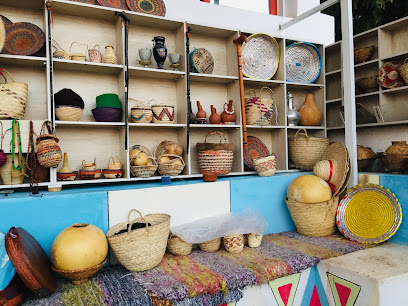
السوق السياحي غرب سهيل tourism market in Nubian village
Discover the vibrant Nubian market in Aswan, where local crafts, delicious food, and rich culture come together for an unforgettable experience.
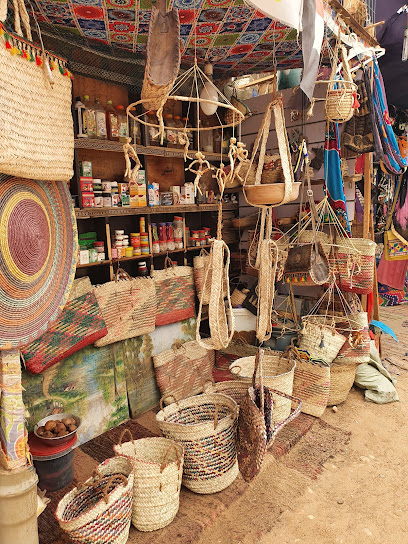
NUBIAN SPICES
Explore Nubian Spices in Aswan - a treasure trove of local flavors, fresh produce, and aromatic spices that embody Egypt's rich culinary heritage.
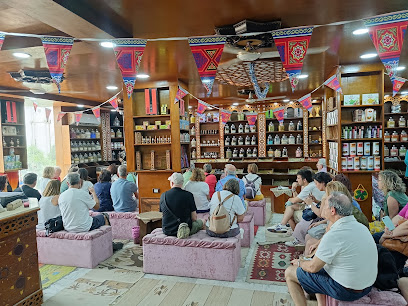
Restaurant
Experience the perfect blend of local charm and exceptional coffee in the heart of Aswan's vibrant culture.
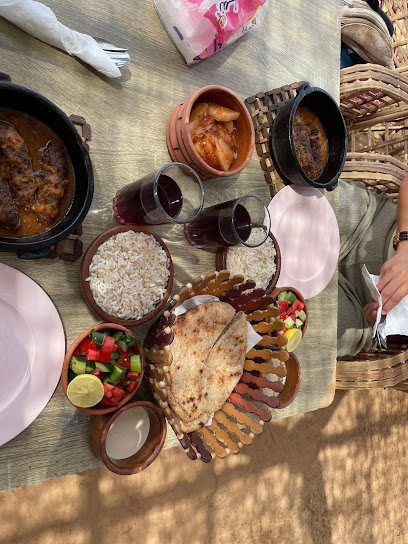
Nubian Eco Village
Experience the serene beauty and rich heritage of Nubian Eco Village in Aswan, a perfect blend of relaxation and cultural exploration.
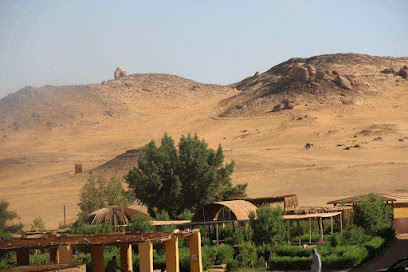
HANAFI BAZAAR (LONELY PLANET)
Explore Hanaf Bazaar in Aswan for unique Nubian gifts and authentic crafts, all with stunning views of the Nile River.
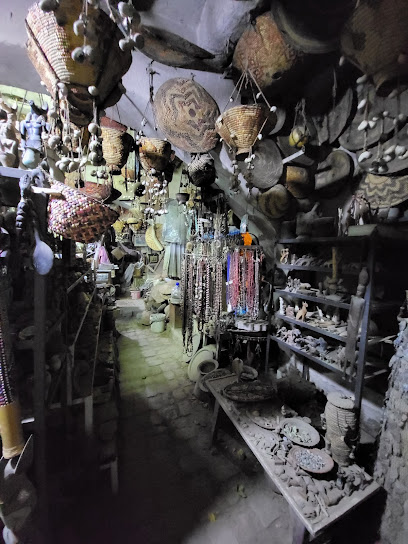
Essential bars & hidden hideouts
Nubian Dreams Restaurant & Cafe
Experience authentic Nubian cuisine at Nubian Dreams Restaurant & Cafe in Aswan, where every dish tells a story of rich cultural heritage.
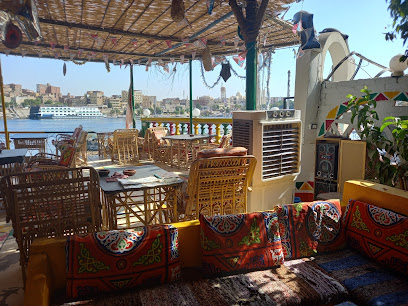
Ibiza Free Beach & Restaurants & Cafe
Discover the perfect blend of beach relaxation and delightful dining at Ibiza Free Beach & Restaurants & Cafe in Aswan.
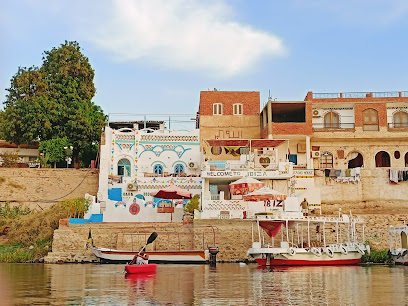
Nubian Holiday House & Restaurant Nile View
Discover the charm of Nubian hospitality at Nubian Holiday House & Restaurant, a perfect blend of culture, cuisine, and comfort along the Nile.
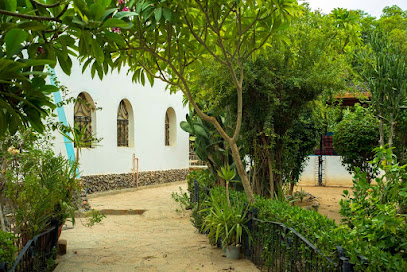
Old Nubian Guest House Philae & Restaurant
Discover authentic Nubian cuisine at Old Nubian Guest House Philae & Restaurant in Aswan, where every dish is a taste of history and culture.
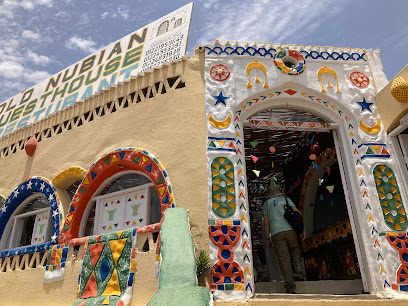
Solaih Nubian Restaurant
Discover the rich flavors of Nubian cuisine at Solaih Nubian Restaurant on Bigeh Island, where culture and culinary excellence meet stunning Nile views.
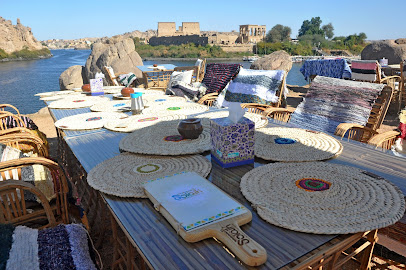
Habibi Nubian Guest House-Nubian Hospitality
Discover the heart of Nubia at Habibi Nubian Guest House, where comfort meets cultural immersion in a picturesque village setting.
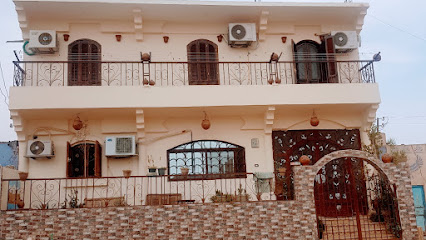
Kerma Nubian Restaurant
Experience authentic Nubian cuisine at Kerma Nubian Restaurant in Aswan, where rich flavors and warm hospitality await every visitor.
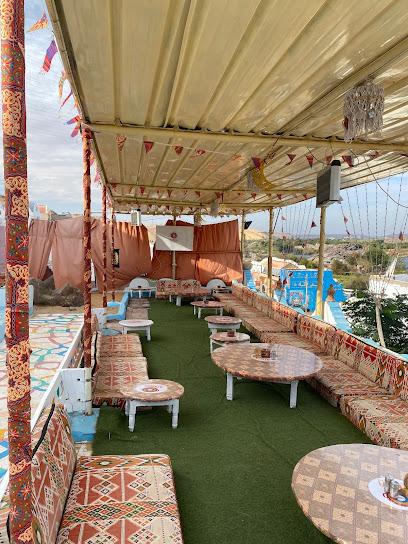
Strawberry Restaurant
Discover the authentic taste of Nubian cuisine at Strawberry Restaurant on Elephantine Island, Aswan, where flavors and hospitality meet.
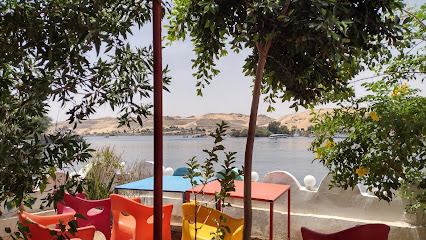
Amory restaurant Nubian village Aswan
Experience authentic Egyptian cuisine at Amory Restaurant in Nubian Village, Aswan, where culture meets culinary excellence.
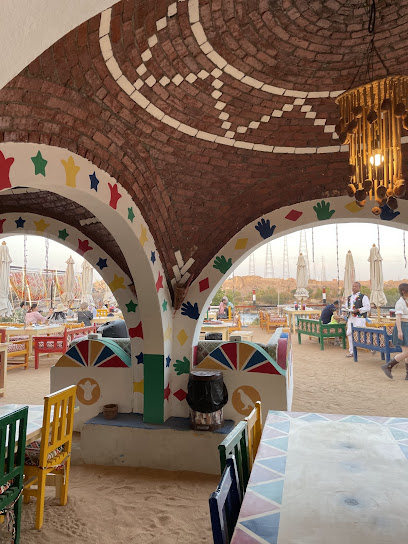
Núbiai falu-Crocodile House
Experience the thrill of dining among crocodiles at Crocodile House in Aswan, where unique cuisine meets unforgettable wildlife encounters.
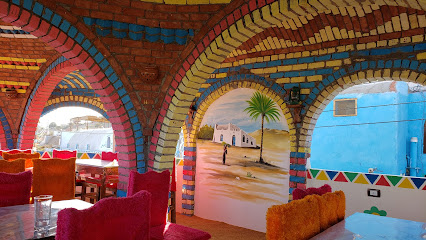
Local Phrases
-
- Helloمرحبا
[marhaba] - Goodbyeوداعا
[wada'an] - Yesنعم
[naam] - Noلا
[la] - Please/You're welcomeمن فضلك/على الرحب والسعة
[min fadlak/alaa al-rahb was-sa'ah] - Thank youشكرا لك
[shukran lak] - Excuse me/Sorryعذرا
[udhuran] - How are you?كيف حالك؟
[kayfa haluk?] - Fine. And you?بخير. وأنت؟
[bi-khayr. wa-ant?] - Do you speak English?هل تتكلم الإنجليزية؟
[hal tatakallam al-ingliziyya?] - I don't understandأنا لا أفهم
[ana la afham]
- Helloمرحبا
-
- I'd like to see the menu, pleaseأرغب في رؤية القائمة، من فضلك
[urghab fi ru'yat al-qa'imah, min fadlak] - I don't eat meatأنا لا آكل اللحم
[ana la aakul al-lahm] - Cheers!في صحتك!
[fi sahtak] - I would like to pay, pleaseأود الدفع، من فضلك
[awad al-ddf', min fadlak]
- I'd like to see the menu, pleaseأرغب في رؤية القائمة، من فضلك
-
- Help!النجدة!
[an-najdah!] - Go away!اذهب بعيدا!
[adhhab ba'eedan!] - Call the Police!اتصل بالشرطة!
[atassil bish-shurutah!] - Call a doctor!اتصل بطبيب!
[atassil bitabib!] - I'm lostلقد ضللت الطريق
[laqad dalalt at-tariq] - I'm illأنا مريض
[ana mareed]
- Help!النجدة!
-
- I'd like to buy...أرغب في شراء...
[urghab fi shira...] - I'm just lookingأنا فقط أتفرج
[ana faqat atfarrag] - How much is it?كم سعره؟
[kam si'ruh?] - That's too expensiveهذا غالي جدا
[hatha ghali jiddan] - Can you lower the price?هل يمكنك تخفيض السعر؟
[hal yumkinuka takhfiz as-si'ru?]
- I'd like to buy...أرغب في شراء...
-
- What time is it?كم الوقت؟
[kam al-waqt?] - It's one o'clockالساعة الواحدة
[as-sa'ah al-wahidah] - Half past (10)النصف بعد (العاشرة)
[an-nisf ba'd (al-ashirah)] - Morningالصباح
[as-subah] - Afternoonالظهر
[adh-dhuhr] - Eveningالمساء
[al-masa'] - Yesterdayالأمس
[al-ams] - Todayاليوم
[al-yawm] - Tomorrowغدا
[ghadan] - 1واحد
[wahid] - 2اثنين
[ithnayn] - 3ثلاثة
[thalatha] - 4أربعة
[arba'ah] - 5خمسة
[khamsah] - 6ستة
[sittah] - 7سبعة
[sab'ah] - 8ثمانية
[thamania] - 9تسعة
[tasi'ah] - 10عشرة
[ashirah]
- What time is it?كم الوقت؟
-
- Where's a/the...?أين...
[ayn...] - What's the address?ما هو العنوان؟
[ma huwa al-'anwan?] - Can you show me (on the map)?هل يمكنك أن تريني (على الخريطة)؟
[hal yumkinuka an tarini (ala al-kharitah)?] - When's the next (bus)?متى يأتي الحافلة التالية؟
[mata yati al-hafilah at-taliyah?] - A ticket (to ....)تذكرة (إلى ....)
[tathkirah (ila ....)]
- Where's a/the...?أين...
History of Nubian Village
-
Nubian Village, located near Aswan, has roots that trace back to ancient Nubia, a civilization known for its wealth and power, particularly during the time of the Pharaohs. Nubia was strategically positioned along the Nile, making it a vital area for trade and cultural exchange between sub-Saharan Africa and Egypt. The Kingdom of Kush, which emerged in Nubia, was notable for its pharaohs who ruled Egypt during the 25th Dynasty.
-
From the 8th century BC onwards, the Nubian Kingdoms, particularly the Kingdom of Kush, expanded their influence, with several dynasties ruling over Egypt. The Nubians are renowned for their impressive pyramids and temples, which rival those of Egypt. The village today preserves this rich cultural heritage, as descendants of these ancient civilizations still inhabit the region.
-
During the construction of the Aswan High Dam in the 1960s, the Nubian communities faced significant displacement. The dam's creation led to the flooding of ancestral lands, prompting a forced relocation of Nubians to higher ground. This resettlement profoundly impacted the cultural landscape, as traditional lifestyles were altered, and many Nubians found themselves adapting to new environments while striving to maintain their cultural identity.
-
In recent decades, there has been a renewed interest in Nubian culture, driven by tourism to the Aswan area. Nubian Village is now a vibrant community known for its colorful homes, traditional crafts, and hospitality. Cultural festivals and events celebrating Nubian music, dance, and cuisine attract visitors, fostering a deeper appreciation for the rich history of the Nubian people and their contributions to Egyptian heritage.
-
Despite historical challenges, the Nubian community continues to preserve its language and traditions. Efforts to promote the Nubian language and cultural practices have gained momentum, with local initiatives encouraging younger generations to engage with their heritage. This cultural resilience is evident in the daily life of the village, where traditional practices coexist with contemporary influences.
Nubian Village Essentials
-
Nubian Village is located approximately 30 minutes by boat from Aswan's city center. To reach the village, tourists can take a felucca (traditional wooden sailboat) from the Aswan Corniche, which offers a scenic view of the Nile. Alternatively, you can take a taxi to the nearby ferry terminal and catch a boat across the river. Some local tour companies also offer guided tours that include transportation.
-
Nubian Village is best explored on foot or by bicycle, as the roads are narrow and pedestrian-friendly. Renting a bicycle is a popular option and can be arranged through local vendors. Taxis are available for longer distances, but within the village, walking allows for a more immersive experience of the local culture and scenery.
-
Nubian Village is generally safe for tourists, but it is advisable to remain vigilant. Avoid walking alone at night, especially in poorly lit areas. Petty crime, such as pickpocketing, can occur in crowded places. Although Nubian Village is not known for high crime rates, it is wise to be cautious, particularly in the more secluded parts of the village.
-
In case of an emergency, dial 122 for police assistance or visit the nearest hospital in Aswan. It is advisable to have a list of emergency contacts and local medical facilities. Pharmacies are available in Aswan for minor health issues. Always have travel insurance that covers health emergencies.
-
Fashion: Do dress modestly, especially when visiting local homes or mosques. Avoid revealing clothing. Religion: Do respect local customs; be aware of prayer times and avoid loud conversations near prayer areas. Public Transport: Do be polite and offer your seat to elderly passengers. Don't eat or drink on public transport. Greetings: Do greet locals with a friendly smile and a handshake. Don't forget to use the local greeting 'Salam Alaikum' (peace be upon you). Eating & Drinking: Do try traditional Nubian dishes and accept food offerings. Don't waste food, as it is seen as disrespectful.
-
To experience Nubian Village like a local, visit the local markets to buy handmade crafts and traditional Nubian textiles. Engage with the residents, as many are eager to share stories about their culture and history. Participate in a traditional Nubian meal prepared in a local home for an authentic culinary experience. Don't miss the vibrant murals and colorful houses that reflect the unique Nubian culture.
Trending Landmarks in Nubian Village
-
Nubian Museum
-
Aswan Botanical Garden
-
Elephantine Island Pyramid
-
Kato Waidi Nubian House كاتو وايدى نوبيان هاوس
-
السوق السياحي غرب سهيل tourism market in Nubian village
-
Nubian Eco Village
-
Discover with Mahmoud, Abu Simbel & the Nubian village tours
-
Soma family house
-
Desert Nile Aswan view point
-
Public Ferry to Nubian Village
Nearby Cities to Nubian Village
-
Things To Do in Luxor
-
Things To Do in Marsa Alam
-
Things To Do in Sohag
-
Things To Do in Hurghada
-
Things To Do in El Gouna
-
Things To Do in Asyut
-
Things To Do in Sharm El Sheikh
-
Things To Do in Minya
-
Things To Do in Dahab
-
Things To Do in Yanbu
-
Things To Do in Al Ula
-
Things To Do in Beni Suef
-
Things To Do in Tabuk
-
Things To Do in Aqaba
-
Things To Do in Eilat










